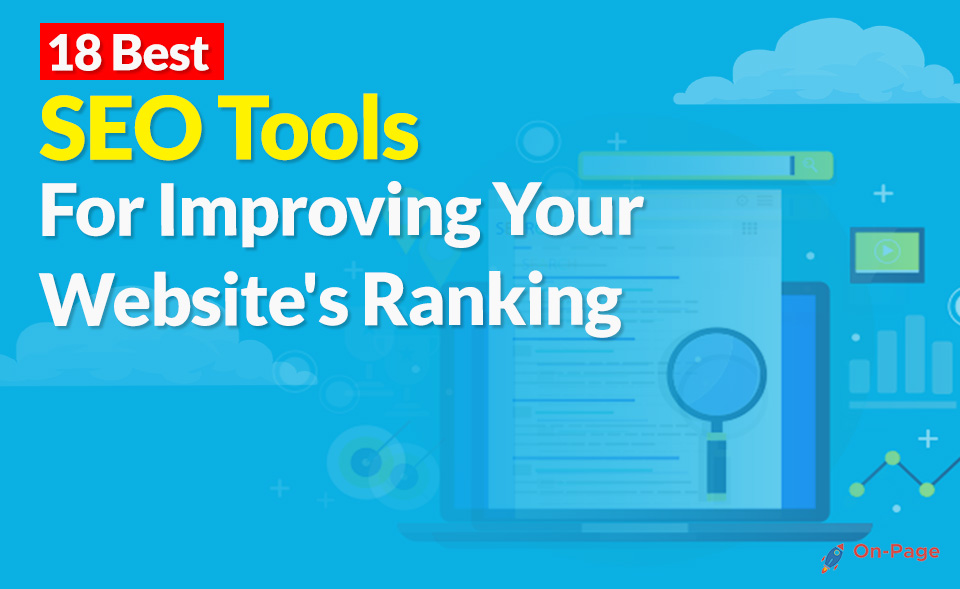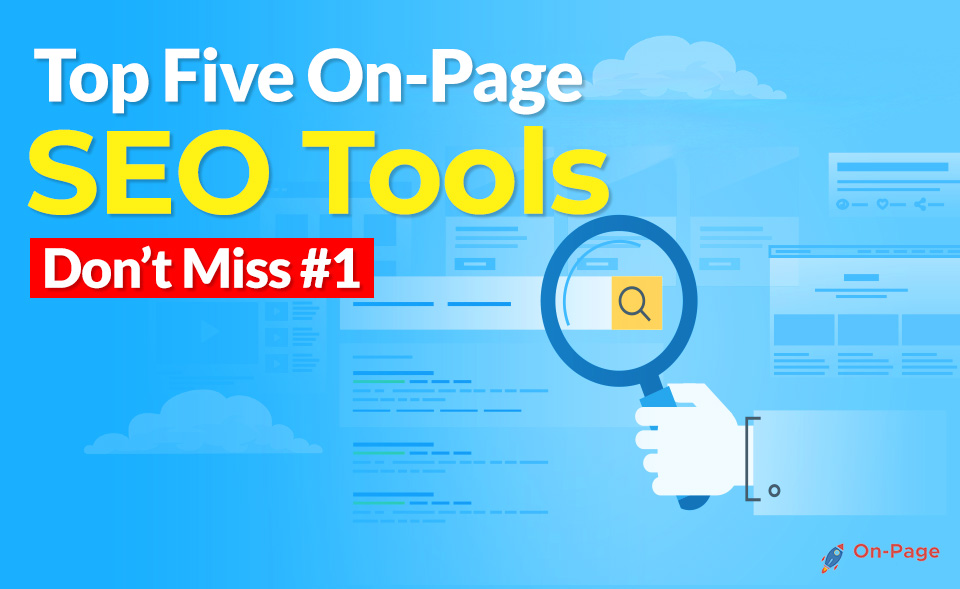In this age, the ultimate tool is indeed a sophisticated website analyzer. This analyzer, with its advanced abilities, dissects your website examining its SEO, speed, mobile-friendliness and security aspects. But beyond simple analysis, it transforms these insights into valuable recommendations for you, a feature that might be surprisingly unexpected. And let me assure you, our On-Page.ai’s website analyzer doesn’t just stop there.
Our Website Analyzer tool offers comprehensive insights into website performance, including loading time, speed, on-page factors, and meta tags. It provides a detailed report highlighting strengths and weaknesses, along with suggestions for improvement, allowing users to make informed decisions to enhance their site’s SEO performance.
What Is A Website Analyser?
A website analyzer acts as a meticulous detective scrutinizing every aspect of your website. It delves into the structure, content, performance, and security to identify any issues and opportunities for improvement.
So, what exactly does a website analyzer assess?
- SEO Factors: This includes checking meta tags, headings, keywords usage, and other on-page optimization elements to ensure that your website is easily discoverable by search engines.
- Loading Time and Speed: The tool evaluates how fast your pages load and identifies opportunities to speed up your website for better user experience.
- Mobile-friendliness: With the increasing number of users accessing websites from mobile devices, a website analyzer checks if your site is responsive and optimized for mobile viewing.
- Security: It examines security protocols and vulnerabilities to ensure that your website is protected against cyber threats.
The Power of Insights: One of the most valuable aspects of a website analyzer is its ability to provide actionable insights. These insights are based on data-driven analysis and help you understand the current state of your website. By identifying areas that need improvement and highlighting strengths, a website analyzer becomes an invaluable tool for enhancing your website’s performance.
For example, if the tool flags certain pages with slow loading times, it prompts you to optimize images or compress large files to enhance page speed. If it detects issues with mobile-friendliness, it may suggest implementing responsive design elements to improve the user experience for mobile visitors.
Let’s say you run an online store. A comprehensive website analyzer will help you identify specific product pages that might not be properly optimized for search engines. It might recommend adjusting meta titles or descriptions to align with popular search queries related to your products, ultimately boosting visibility and attracting more potential customers.
This kind of targeted guidance enables you to make strategic adjustments that directly impact your website’s performance in search engine results.
Having explored what a website analyzer does and the powerful insights it provides, let’s take a closer look at how these insights can be leveraged to optimize your website effectively.
Crucial Website Analyser Features in 2024
In the ever-changing landscape of online business, where competition is rife and customer expectations are constantly rising, having a top-notch website is essential. However, it’s not just about what your website looks like to visitors; it’s also about how it performs behind the scenes.
A comprehensive website analyzer in 2024 needs to cover several critical aspects to ensure that your website meets modern standards. Let’s explore some of the most crucial features that should be included in a top-of-the-line website analyzer.
Page Speed Analysis
One of the most vital components of a website is its loading speed. In today’s fast-paced digital world, users expect websites to load quickly and efficiently. A robust website analyzer should have advanced page speed analysis tools to identify elements that are causing slow loading times. This could include large image files, bulky scripts, or other factors that impact user experience and search engine rankings.
A slow-loading website can lead to visitors leaving prematurely, resulting in higher bounce rates and potentially lower search engine rankings. Therefore, having the capability to pinpoint and rectify issues that contribute to sluggish page loading is critical for maintaining a competitive edge online.
Mobile Responsiveness Check
The prevalence of mobile devices as the primary means of accessing the internet makes mobile responsiveness an indispensable feature for any modern website. A potent website analyzer should assess a site’s mobile responsiveness, ensuring that it renders seamlessly across various screen sizes and resolutions.
With more people using smartphones and tablets to browse the internet, a lack of mobile responsiveness can significantly detract from the user experience, driving away potential customers. Consequently, an effective website analyzer must include rigorous checks for mobile responsiveness.
SSL Certificate Evaluation
In an era where sensitive data protection is a primary concern for both businesses and consumers, integrating SSL into your website not only safeguards user information but also fosters trust. Additionally, search engines consider HTTPS as a ranking factor, making SSL certificate evaluation an essential component of comprehensive website analysis.
Content Optimization Suggestions
The content displayed on your website plays a pivotal role in attracting organic traffic from search engines. A robust website analyzer should offer content optimization suggestions such as keyword density, meta tags, and heading structure to enhance the visibility of your web pages in search results.
Ensuring that your chosen website analyzer encompasses these crucial features will put you on the right path towards creating an optimized and high-performing digital presence in 2024.
By incorporating these vital tools into a comprehensive SEO strategy, you’ll be able to maximize your online visibility and attract targeted traffic. Next, let’s delve into the tangible benefits of using a top-tier website analyzer tool.
Benefits of Using a Website Analyser
When it comes to enhancing your website’s performance, using a website analyzer is like having an expert partner by your side. Let’s take a closer look at some key benefits that make a difference in today’s competitive digital landscape.
Enhanced SEO Performance
The key to driving organic traffic and gaining higher visibility on search engines lies in optimizing your website for relevant keywords and user experience. A website analyzer provides detailed insights into optimization opportunities, allowing you to prioritize improvements that directly impact your site’s search engine ranking. By addressing identified issues and implementing recommended changes, your website becomes more attractive to search engine algorithms, ultimately leading to increased organic traffic and improved business growth.
For instance, if the website analyzer identifies critical issues such as slow loading speed or missing meta tags, you can take prompt action to rectify these deficiencies. As a result, you’re not only improving user experience but also signaling to search engines that your website is trustworthy and valuable, which can positively impact its ranking.
Data-Driven Decision Making
One of the most valuable aspects of using a website analyzer is the ability to make well-informed decisions by leveraging data-driven insights. Instead of making changes based on guesswork or assumptions, you gain access to actionable data that guides you towards effective improvements.
For instance, let’s say the analyzer indicates that a particular web page has a high bounce rate. Armed with this information, you can analyze user behavior patterns, identify potential reasons for the high bounce rate, and implement targeted changes to enhance engagement and retention. This data-driven approach ensures that your efforts are focused on areas that will yield tangible results, rather than making blind adjustments.
Competitive Edge
In today’s dynamic digital landscape, staying ahead of the competition is crucial for long-term success. Regular analysis using a website analyzer enables you to uncover competitive opportunities and adapt to changing SEO trends effectively.
By monitoring your competitors’ performance and identifying their strategies, you can gain invaluable insights into industry trends and customer preferences. This allows you to align your website’s optimization efforts with the latest best practices and emerging trends, giving you a competitive edge in attracting and retaining web traffic.
Understanding how an effective website analyzer can boost your SEO strategy sets the stage for exploring the specific tests performed by this powerful tool in our next section.
Website Analyser: Different Tests Performed
When you run your website through an analyzer, it undergoes a series of tests to evaluate various aspects of its performance. These tests are crucial in understanding the strengths and weaknesses of your website’s SEO, accessibility, and security.
SEO Audit
One of the primary features of website analyzers is their ability to perform a comprehensive SEO audit. This involves evaluating on-page, off-page, and technical SEO factors to identify areas for improvement in search engine optimization.
A thorough SEO audit can reveal critical insights into how well your website is optimized for search engines. Factors such as meta tags, keyword density, backlinks, and overall content quality are assessed to provide actionable recommendations for improving your website’s search rankings. The SEO audit also highlights specific areas where your website excels, allowing you to capitalize on these strengths and maintain a competitive edge in the digital landscape.
Accessibility Check
Beyond SEO, website analyzers also conduct accessibility checks to ensure that your website meets the necessary standards for accommodating users with disabilities. With the increasing focus on inclusivity and user experience, web accessibility has become a pivotal aspect of digital presence.
For instance, an accessibility check can evaluate the implementation of alt texts for images, proper heading structures for assistive technologies, and keyboard navigation support. The goal is to create a more inclusive online environment that caters to diverse user needs.
Security Scan
In today’s digital landscape, cybersecurity is paramount. Website analyzers conduct security scans to identify potential vulnerabilities and security risks that could compromise the integrity of your website.
This is similar to having a security expert inspecting the locks, alarms, and overall safety measures of your physical premises. The aim is to detect issues such as malware infections, outdated software components, weak SSL configurations, or other susceptibilities that could lead to data breaches or unauthorized access. The results of the security scan equip you with valuable insights into fortifying your website against cyber threats and maintaining trust with your visitors by prioritizing data protection.
By integrating these tests into a cohesive analysis, website analyzers offer holistic evaluations that empower website owners to enhance their online presence across critical dimensions of digital performance.
Choosing the Right SEO Optimization tool in 2024
In 2024, the realm of SEO optimization tools has evolved with advanced features designed to provide comprehensive insights and strategic recommendations to enhance website performance. When selecting an SEO optimization tool, several critical factors need consideration.
Actionable Insights: The best SEO tools in 2024 provide actionable insights based on thorough analysis. These insights improve on-page content, identify technical issues, and suggest off-page optimization strategies. Look for a tool that doesn’t just present data but also offers clear and practical recommendations for improvement.
AI Integration: Considering SEO tools that have integrated AI-powered features is crucial. These features offer personalized recommendations, predictive analysis, and automation capabilities that streamline your SEO efforts.
Adaptability to Search Engine Algorithms: It’s essential to choose an SEO optimization tool that can seamlessly adapt to evolving search engine algorithms. Look for tools that stay updated with the latest algorithm adjustments and offer flexible strategies to align with dynamic search engine requirements.
On-Page.ai’s Advanced Capabilities: On-Page.ai stands out by providing dynamic and predictive solutions to meet the evolving SEO needs of website owners. It encompasses critical factors by offering an array of cutting-edge features, including AI-driven recommendations, on-page scans, and predictive guest posts.
With the ever-changing landscape of digital marketing, having a tool that not only analyzes current website performance but also predicts future trends and requirements is invaluable. This predictive capability allows website owners to stay ahead of the curve and implement proactive strategies rather than being reactive to changes in search engine algorithms or user behavior.
Additionally, the incorporation of AI-driven recommendations ensures that website owners receive tailored insights specific to their website’s performance and goals. This level of customization and personalization is essential in optimizing resources and maximizing the impact of SEO efforts.
For instance, On-Page.ai’s predictive guest posts feature utilizes AI algorithms to forecast which guest post opportunities are most likely to yield significant traffic and engagement based on historical data and current trends. This forward-looking approach empowers website owners to allocate their content resources efficiently and strategically.
Furthermore, the on-page scans provided by On-Page.ai offer comprehensive evaluations of individual web pages, highlighting areas for improvement and optimization. The integration of AI technologies enables these scans to delve deep into content analysis, semantic relevance, keyword usage, and user experience factors, delivering actionable insights for enhanced on-page SEO strategies.
By considering these critical factors and evaluating the advanced capabilities offered by tools like On-Page.ai, website owners can make informed decisions when selecting an SEO optimization tool that aligns with their dynamic digital marketing needs.
As the digital marketing landscape continues to evolve rapidly in 2024, it’s crucial to explore the unforeseen uses for website analyzers that are revolutionizing the industry. Let’s explore how these innovative tools are reshaping digital strategies in ways no one could have predicted.
Unforeseen Uses for Website Analysers in 2024
Website analyzers are powerful tools, not just for SEO but also for unearthing valuable insights to propel your business forward. Let’s explore these unforeseen uses and how they can positively impact your growth.
Market Research
Understanding your target audience and deciphering consumer behavior, preferences, and market trends is crucial. Website analyzers provide intricate details about visitor interaction, popular content, and drop-off points. This data grants you a valuable edge in tailoring your products and services to meet specific audience needs and desires.
Utilizing website analysis data for market research allows you to make informed decisions that align with consumer demand and industry trends. For instance, if a specific blog post or product consistently receives high traffic and engagement, this data can guide your content creation and product development strategies. In essence, the information gleaned from website analyzers is a goldmine for shaping effective business strategies and staying ahead of the curve.
User Experience Enhancement
The user experience (UX) on your website directly influences customer satisfaction, engagement, and ultimately conversions. Leveraging insights from website analyzers can provide invaluable guidance in optimizing the user experience to be more seamless and intuitive. By analyzing user navigation patterns, heatmaps, and click-through rates, you can identify pain points and friction areas within your website.
With this knowledge, you can overhaul your website’s layout, navigation structure, and content presentation to create a more user-friendly environment. Additionally, A/B testing various design elements based on the data obtained from website analyzers allows you to continually fine-tune the user experience. Ultimately, a well-crafted user experience fosters deeper engagement with visitors and increases the likelihood of them converting into loyal customers.
The applications of website analyzers extend far beyond traditional SEO optimization and hold the potential to significantly elevate your market research efforts and enhance user experience for optimal business growth. Check out On-Page.ai for an advanced tool for all your SEO optimization needs in 2024.





